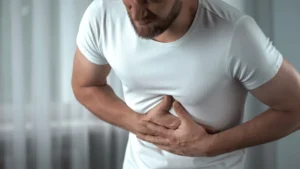Introduction
Pancreatic cancer is a challenging disease that requires a comprehensive approach to treatment, and diet plays a crucial role in managing the symptoms and promoting overall well-being. A proper diet for a person with pancreatic cancer should focus on providing adequate nutrition while maintaining a healthy weight and managing digestive difficulties. In this article, we will explore the diet recommendations, foods to avoid, tips for gaining weight and coping with a loss of appetite, and understand when it is necessary to seek medical assistance.

Diet Recommendations
1. Balanced Nutrition:
A person with pancreatic cancer should focus on consuming a well-balanced diet that includes a variety of foods. Emphasize whole grains, lean proteins, fruits, vegetables, and healthy fats. Opt for small, frequent meals throughout the day rather than three large meals, which can help manage digestion and ensure a steady intake of nutrients.
2. Hydration:
Staying well-hydrated is essential for individuals with pancreatic cancer, as treatments and medications can contribute to dehydration. Drink plenty of water, herbal teas, and clear soups. Avoid sugary drinks and caffeine, as they can cause further dehydration.
3. Dietary Supplements:
To ensure adequate nutrition, dietary supplements may be recommended by the healthcare team. These supplements may include vitamins, minerals, and digestive enzymes. It is important to consult with a healthcare professional before starting any such supplements.
Foods to Avoid
While an overall balanced diet is important, there are certain foods that individuals with pancreatic cancer should try to limit or avoid altogether. These can include:
- Fatty and fried foods, as they can be difficult to digest and may aggravate symptoms
- Sugary and highly processed foods, which offer little nutritional value and can increase inflammation
- Spicy foods and acidic foods, as they may irritate the digestive system and cause discomfort
- Alcohol and caffeinated beverages, which can worsen dehydration and disrupt digestion
Consulting a healthcare professional or a registered dietitian can provide personalized guidance regarding specific food restrictions based on an individual’s condition.
Gaining Weight
Pancreatic cancer and its treatments can often cause weight loss, which can lead to weakness and a compromised immune system. Here are a few tips to help gain weight healthily:
- Eating energy-dense foods such as avocados, nuts, and nut butter
- Incorporating healthy fats like olive oil, coconut oil, and fatty fish into meals
- Adding protein-rich foods such as beans, eggs, and poultry to meals
- Having smaller, more frequent meals instead of larger portions
- Using full-fat dairy products in cooking or as snacks
It is advisable to work with a dietitian experienced in oncology nutrition to create a personalized meal plan that focuses on healthy weight gain tailored to individual needs.
Feeling Unable to Eat
Pancreatic cancer and its treatments can cause a loss of appetite and make it challenging to eat enough to meet the body’s nutritional needs. In such cases, some strategies to cope with eating difficulties include:
- Experimenting with different textures and temperatures to find foods that are more easily tolerated
- Trying liquid meals, smoothies, or protein shakes to provide nutrition in an easily digestible form
- Opting for small, frequent meals rather than large portions
- Working with a dietitian to explore appetite stimulants or therapeutic diets
If appetite loss persists or worsens, it is essential to seek medical assistance promptly.
When to Seek Doctor Help
While a well-balanced diet is important for individuals with pancreatic cancer, there are situations where professional medical guidance is crucial. It is recommended to seek assistance from a healthcare professional if:
- Significant unintended weight loss or difficulty in maintaining a healthy weight occurs
- Severe digestive symptoms, such as persistent nausea, vomiting, or diarrhea, persist
- There is a notable increase in pain or discomfort after meals
- Dehydration symptoms, such as intense thirst or dark urine, are present
A healthcare team, including a dietitian, can provide appropriate recommendations and interventions to address these concerns.
Summary
In conclusion, a well-planned and balanced diet is crucial for individuals with pancreatic cancer. Eating frequent, smaller meals, staying well-hydrated, and incorporating nutrient-dense foods are essential. Avoiding certain types of foods, seeking ways to gain weight healthily, and managing loss of appetite are important tasks in supporting overall well-being. However, it is always advisable to consult with healthcare professionals, such as a registered dietitian, to receive personalized guidance based on an individual’s specific condition and needs.